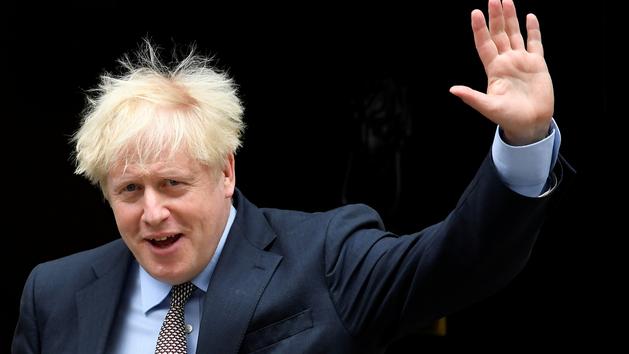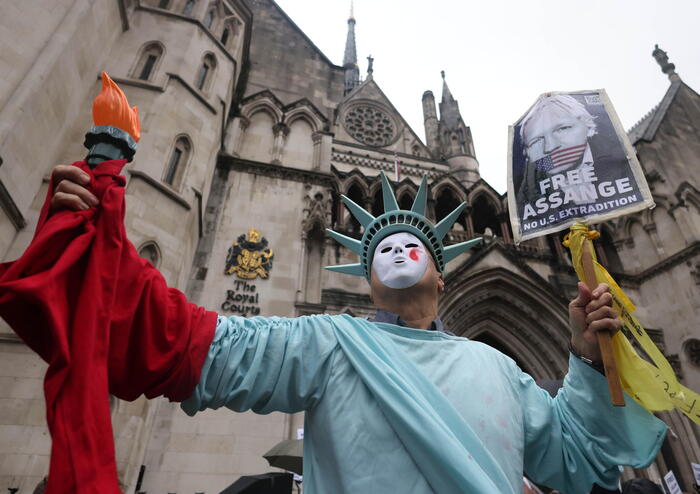British MPs are looking Monday, September 14 on Boris Johnson's plan to reverse the Brexit agreement, which sparked an outcry within the conservative majority itself and the anger of Europeans in the midst of trade negotiations.
Read also: Criticized, Johnson justifies his reversal on the Brexit agreement by "threats" from the EU
The presentation of the law "
on the internal market
" last week triggered a crisis worthy of the most dramatic episodes of the Brexit saga, launched more than four years ago by the victory of the "
leave
" in the referendum and which some thought it was over with the historic exit of the United Kingdom from the European bloc last January.
The bill gives London the power to unilaterally make trade decisions in its province of Northern Ireland, powers that are supposed to be shared with Europeans, according to the Brexit deal reached last year.
By the British government's own admission, his project violates international law.
He unsurprisingly put fuel on the fire of already sluggish negotiations supposed to arrive at a free trade agreement and avoid a sudden rupture on January 1, the date which marks the end of the transition period amortizing the divorce.
He has also been widely criticized in the British political class, in particular by four former prime ministers, including the Conservatives John Major and Theresa May.
Johnson justifies himself and speaks of European "threats"
The session promises to be agitated Monday afternoon in the House of Commons, where the text must be debated and voted on at second reading, despite the large majority available to the government of Boris Johnson.
Going back on what has already been signed "
is a potentially harmful act for our country
", thus estimated on Saturday the elected conservative Robert Neill, who tabled an amendment limiting the powers of the government concerning any infringement of the Brexit agreement: "
It would damage our reputation and make it more difficult to conclude future trade agreements
."
In a column published on Saturday, Boris Johnson tried to convince his MPs of the need to pass the bill.
According to him, it aims to prevent the EU from carrying out its "
threat
" - refuted by the Europeans - to establish a
food
"
blockade
" between the province of Northern Ireland and Great Britain, under the regime. special provided for by the Brexit treaty, if the United Kingdom does not show itself to be more conciliatory in their trade negotiations.
These complex customs provisions of the Brexit agreement were aimed in particular at preventing the return of a border between the Republic of Ireland, a member of the EU, and the British province, in accordance with the 1998 peace agreement which put end to three decades of violence.
However, if the EU refuses to put the UK on the list of countries allowed to export food to its territory, "
it will automatically be illegal for Northern Ireland to import food from
" the rest of the world. country, British negotiator David Frost warned on Sunday.
He accused the Europeans of having "
explicitly
" warned that this inclusion would not be "
automatic
", hence the need for the law to allow trade to continue.
A "no deal", aggravating factor of the economic crisis
If adopted in the House of Commons, the controversial bill will then have to cross the obstacle of the House of Lords, the upper house of Parliament, where criticism has been raised in the face of an assumed violation of international law that risks weakening the voice. of London on the international stage.
The leader of the opposition, Labor Keir Starmer, has also spoken out against the text, which he considers "
bad
" and "
counterproductive
", but said he was open to negotiation.
Despite the crisis triggered by this project, discussions are continuing between British and European negotiators to try to reach a free trade agreement.
They are due to resume this week in Brussels but an eighth session last week did not promise any major breakthroughs on the main bottlenecks, namely London's compliance with rules avoiding creating unfair competition at the gates of the EU and the conditions for access for European fishermen to British waters.
The two sides said that an agreement should be reached in October to avoid a "
no deal
" amounting to the introduction of customs duties between the United Kingdom and the European bloc and risking aggravating the historic economic crisis caused by the novel coronavirus pandemic.








